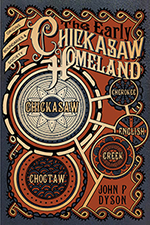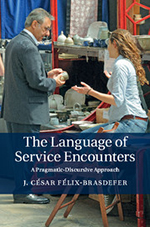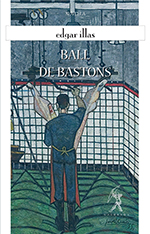Faculty News
- New Faculty: Patricia Amaral
- New Faculty: Olimpia Rosenthal
- Faculty Retirement: Catherine Larson
- Obituary: Luis Davila
- Obituary: Gustavo Sainz
- Obituary: Josep Sobrer
- Books and Awards
Patricia Amaral New Assistant Professor of Hispanic Linguistics

Patricia Amaral
Patricia Amaral joins the department as a new Assistant Professor of Hispanic linguistics. She studied at the University of Coimbra, Portugal (her home country), where she completed a BA in Classical Languages and Literatures and later an MA in Linguistics (1999). Prof. Amaral received her PhD in Hispanic Linguistics at The Ohio State University in 2007 and was a postdoctoral fellow in the Linguistics Department at Stanford University for 2 years. Before coming to IU, she was an assistant professor at UNC Chapel Hill. She is the author of Do paradigma ao modelo: a relevância da metáfora para a compreensão do processo interpretativo (Lisbon, Colibri, 2003). More recently, together with Ana Maria Carvalho, Amaral edited Portuguese/Spanish Interfaces: Diachrony, Synchrony and Contact (John Benjamins, 2014). Her research focuses on the interfaces between syntax, semantics and pragmatics, with a particular interest in language change in Ibero-Romance. She has also worked on contact between Portuguese and Spanish in the Iberian Peninsula (Barranquenho/Barranqueño). Current projects include the historical development of degree words in Spanish as well as the interaction of syntactic mechanisms and discourse structure in the development of contrastive markers like pero and sin embargo in a comparative perspective within Ibero-Romance. She is looking forward to fruitful collaborations with students and faculty at IU as well as enjoying the musical and broader arts scene in Bloomington.
Olimpia E. Rosenthal Joins Faculty as Assistant Professor of Hispanic Literature

Olimpia E. Rosenthal
Olimpia E. Rosenthal joins the Department this fall as Assistant Professor of Hispanic literature, specializing in comparative Colonial and Postcolonial cultural studies, Andean literature and visual culture, and Critical Race Studies. Prof. Rosenthal is originally from Erongarícuaro, Michoacán, but was living in Tucson, Arizona, before moving to Bloomington. She received her doctorate from the University of Arizona in 2013, and she is currently working on a book manuscript tentatively titled “Condemning Mestizaje: Spatial Segregation and the Racialization of Sex in Colonial Latin America.” A recent article of hers, “La figura abyecta del mestizo en El primer nueva corónica y buen gobierno,” was published in a special issue commemorating the four-hundredth anniversary of Felipe Guamán Poma de Ayala’s renowned letter-chronicle. Prof. Rosenthal has been living in Bloomington for the past two years, and previously worked at IU as Visiting Assistant Professor. She recently co-organized a conference here titled “Race, Place, and Capital in Postcolonial Studies,” and she is currently planning a follow-up workshop on “Comparative Subalternities” that will take place in December and will be held at IU’s Gateway Office in Gurgaon, India.
Faculty Retirement: Professor Catherine Larson
Catherine Larson
After being on the faculty for 30 years, Professor Catherine Larson retired from Indiana University on June 30, 2015. Cathy arrived in Bloomington in 1985 and spent most of her exceptional career here, save for the three years prior to that when she taught at the College of the Holy Cross. She completed her BA and BS in Spanish and Secondary Education and MA in Spanish at the University of Missouri and earned her PhD in Spanish at the University of Kansas. At IU, Cathy rose from Assistant to Associate to Full Professor, establishing herself, though the publication of monographs, translations, edited collections, articles and book chapters, as one of the leading voices in the US and internationally on Early Modern (Golden Age) Spanish theater and on modern and contemporary Latin American theater, with a particular emphasis on plays by women dramatists and performance theory and practice. She has authored Games and Play in the Theater of Spanish American Women and Language and the Comedia: Theory and Practice, and co-edited Latin American Women Dramatists: Theater, Texts, and Theories and Brave New Words: Studies in Spanish Golden Age Literature. In the near future, another co-edited anthology of Hispanic drama will be published. She has also penned over thirty peer-reviewed articles and book chapters. Her many translations, including her award-winning translation of Maria de Zayas’ La traición de la amistad (Friendship Betrayed), have been performed around the country to great applause and critical acclaim.
Cathy has been an indefatigable fighter for the Department, the University and the profession, and she has strengthened all three in many significant ways, giving every task her all. To name just a few highlights, she was a driving force for the 2012 grant application from the US Department of Education that brought over $500,000 in grant money to the department; she served as Director of Undergraduate Studies (1996-2000) and as Acting Director of Undergraduate Studies (1994-95, 2002-03); her superb administrative talents were recognized beyond the Department when she was asked to serve as Associate Dean for Undergraduate Education in the College of Arts and Sciences (2003-2008), where she worked tirelessly on a host of projects including the GenEd Curriculum; following that, she came back to us to serve a term as Department Chair (2009-2012). Cathy brings a particular zeal to service tasks, and it is no surprise that she won the Distinguished Service Award of the Association for Hispanic Classical Theater, where she has served as member of the Board of Directors and also as Program Chair and Conference Chair, among many other duties. Cathy has also been a wonderful collaborator in the co-organization of events at IU, including, among others, a memorable symposium to celebrate the 400th anniversary of the publication of Cervantes’ Don Quixote in 2005.
Cathy holds the highest standards for research, service and also teaching. Her love of teaching is reflected in her election to FACET in 1991 and, then in 2002, to her receiving the highly-competitive Frederic Bachman Lieber Memorial Award for Excellence in Teaching. It comes as no surprise that both undergraduates and graduates rave about her classes, and that students flock to her for direction on their honors theses, MA exams, and doctoral dissertations (just counting the last category alone, she has directed 14 dissertations and served on 38 dissertation committees, and, to our good fortune, she has agreed to serve on others even in retirement). She has also given presentations on teaching and co-edited Quick Hits: FACETS Classroom Techniques. A Series of Successful Strategies by Award Winning Teachers. In what she considers a most memorable lifetime experience, she served as the resident director of the Wisconsin, Indiana, Purdue (WIP) study-abroad academic year program in Madrid. Her verve for classroom teaching flows into the out-of-classroom mentoring that she has done, in directing and producing theater, as well as serving as advisor for the student-led theater company of our department, VIDA, which owes a great deal of its continued success to Cathy’s initiatives.
Cathy has been a superlative mentor to many colleagues and students. As one of her doctoral students, Associate Professor Mindy Badía (IU-Southeast) wrote, “Cathy was a tremendously generous research mentor. I could give her a draft of something I was working on. After investing huge amounts of time and energy to provide constructive feedback, she’d read the revised version and congratulate me on the fine work that ‘I’ had done.” Likewise, Associate Professor Tony Grubbs (Michigan State University) explained that her “selfless dedication to her students’ success is extraordinary. She is a role model to all of us who have had the pleasure—and privilege—to work with her.”
The Department’s faculty and graduate students celebrated Cathy’s career on April 17, 2015 in a special event that is described in a separate article in this issue. We wish her all the very best in retirement.
Department Mourns Passing of Luis Dávila

Luis Dávila
It is with sadness that the Department of Spanish and Portuguese announces the loss of our colleague, Professor Luis Dávila, who passed away on Sunday, March 8, 2015, at the Meadowood Retirement Community. He was Professor Emeritus in Latin American and Latino Literature at Indiana University, Bloomington.
Professor Luis Dávila was born in 1938 in San Antonio, Texas, to María de la Luz Aguilar de Dávila and Luis Dávila Delgado, both natives of Mexico. After graduating as Valedictorian of his high school class at Central Catholic High School, Luis was awarded a full scholarship to attend St. Mary’s University in San Antonio, where he graduated Magna Cum Laude in Chemistry in 1960. Luis went on to pursue a Ph.D. in Latin American literature at Ohio State University, where he met his wife of 47 years, Roberta (Bobbi) Dombeck Dávila--while they were both graduate students.
Luis joined the faculty of Indiana University in the fall of 1969, where he taught in the Department of Spanish and Portuguese until his retirement as Full Professor in 2011. At IU he was deeply involved with the Latino community, for whom he advocated tirelessly and supported in every way he could. In 2008, the Latino Alumni Association awarded Luis the Distinguished Latino Faculty Award in recognition of his outstanding achievements to Indiana University and the Indiana University Latino Community for over 30 years.
Professor Dávila was one of the academic pioneers of Chicano and Latino Studies in the US academy as well as an early advocate at IU for the creation of a program of study for US Latino culture and literature. In 1973, he founded with Nick Kanellos the groundbreaking journal La Revista Chicano-Riqueña, which he co-edited until 1980. In 1976, Luis inaugurated the interdisciplinary Chicano-Riqueño Studies Program at IU, dedicated to the study of Puerto Rican, Chicano, and other Spanish-speaking communities in the United States. Additionally, he was the faculty advisor to Chiricú, a multilingual journal of Latina and Latino literature and literary criticism that continues to be published annually at Indiana University. Luis’s efforts to promote US Latino Studies at IU were matched by his service to the university and the profession as a whole, as evidenced by the many terms he served on the Bloomington Faculty Council, the University Faculty Council and the Executive Committee for the Bloomington chapter of the American Association of University Professors.
While his spirited presence will be missed, Luis’s tireless efforts to build and promote a vibrant Latino Studies presence at IU live on in our students, faculty, staff and programs.
Department Mourns Passing of Gustavo Sainz
Gustavo Sainz
Article written by Associate Professor Deborah Cohn
It is with sadness that the Department of Spanish and Portuguese announces the loss of our colleague, Professor Gustavo Sainz, who died on June 26, 2015, two weeks shy of his 75th birthday. In addition to being Professor Emeritus of Latin American literature, Gustavo was a distinguished and prize-winning Mexican novelist and essayist whose work was translated into English, French, Italian, and several other languages.
Gustavo joined the department in 1992, after having held positions at the Universidad Nacional Autónoma de México, Mexico’s Instituto Nacional de Bellas Artes, the University of New Mexico, Middlebury College, Washington University in Saint Louis, and elsewhere. He taught a wide range of courses on Spanish American and Mexican literature, creative writing, and film, before he retired from the department in 2011.
Gustavo was born in Mexico City on July 13, 1940. He burst onto the literary scene 50 years ago with his first novel, Gazapo (1965). Along with José Agustín and Parménides García Saldaña, he was one of the leading figures of la Onda, a Mexican literary movement that coincided with the youth movements and student protests of the 1960s, and that was infused with the spirit (and irreverence) of contemporary countercultural movements. Over the years, Gustavo continued to experiment with language and narrative in his many other novels, which include: Obsesivos días circulares (1969); La princesa del Palacio de Hierro (1974), which was awarded the Premio Nacional de Narrativa Colima in 2003; and El juego de las sensaciones elementales: Autobiografía a cuatro dedos (2006), which he co-authored with Eduardo Mejía. His work has inspired numerous books, articles, and dissertations, to say nothing of a broad fan base. In the 1960s, Gustavo participated in elite writing workshops such as the Centro Mexicano de Escritores and the Iowa Writers’ Workshop. He also received fellowships to support his writing from the Guggenheim Foundation, the Ford Foundation, the Tinker Foundation, and the National Endowment for the Arts, among others.
In addition to practicing his own craft, Gustavo was actively involved in opening literary doors and creating opportunities for other authors. He founded the collection SEP-Setentas and the weekly cultural periodical, La Semana de Bellas Artes; he was the Director of the Literature Department at the Instituto Nacional de Bellas Artes; and he held various other editorial positions. He was also involved in a number of film and television projects, and regularly attended the Feria Internacional de Libros in Guadalajara, Mexico.
This writer fondly remembers inviting Gustavo to speak to my undergraduate students in my course on Mexican literature, where we regularly read Gazapo. Students related to his depictions of youth, its social pressures, questions of generational change, and the exploration of modernity, the modern city, and new technologies. Having a living writer talk to them was always a high point of the course. Students were very excited to hear Gustavo’s descriptions of the novel and its origins, and to ask him questions about the work and its significance.
Gustavo will be missed, but his work will continue to inspire readers for years to come.
Department Mourns Passing of Josep Sobrer

Josep Sobrer
Beloved Emeritus Professor Josep Miquel “Pep” Sobrer died peacefully, at home, from complications of metastatic colon cancer on January 1, 2015.
The outlines of Pep’s professional career are quickly told—in fact, he told them himself in his obituary in the Bloomington Herald-Times. He earned his Licenciatura from the University of Barcelona and his MA and PhD from the University of Oregon. After a few years as Assistant Professor at the University of Michigan he moved to IU in 1981, where he directed the Catalan program, rose to Full Professor of Spanish and Portuguese, and served more than once as department Chair. He retired at the end of 2008.
But this captures so little about Pep’s work. He began as a medievalist, with books on early Catalan historical chronicles and the poet Ausias March. The Franco dictatorship, which banned any public use of Catalan, lasted from before Pep was born until he was over thirty and had finished his American PhD. To anyone who grew up then, writing in the language was a subversive and defiant act. Pep’s good luck and great gifts brought him to IU to direct our Catalan program, the most respected among the very few in the US. For three years in the 1990s he was president of the North American Catalan Society, which earned the Catalan government’s highest cultural award, the Creu de Sant Jordi, at the end of his tenure.
Over the course of his career, Pep’s scholarly publications in or on Catalan would touch on its entire history up to modern poetry and fiction. His 2011 book was on Josep Maria de Sagarra, a twentieth-century dramatic poet. He composed the “Catalan Literature” entry for the Encyclopedia Britannica Online. He edited the volume Catalonia: A Self-Portrait to introduce the region to American readers at the centennial year of 1992. His superb translations from Catalan to English – that is, into his non-native language – include major modern novels by Mercè Rodoreda and Carme Riera and an autobiography of the painter Antoni Tàpies. The works that he translated from English to Catalan encompass some of the greatest poets in English from Chaucer to Sylvia Plath, as well as novels by Ian Fleming, H.G. Wells, and the Gormenghast series by Mervyn Peake. In short, our knowledge of Catalonia and Catalan has been immensely enriched by Pep’s work.
Pep pursued his academic career within Hispanism but all of his studies versed on Catalan literature. While working on non-Castilian archives has fortunately become more accepted today, nobody in the US academy before Professor Sobrer had reached full professorship by writing exclusively on a linguistically non-hegemonic literature. Catalan Studies but also Hispanism as a whole owes a debt to him for helping bring visibility to the multilingual reality of the Iberian peninsula.
Pep was a true writer, and writing just poured out of him. One book of poetry and prose was inspired by the Tarot. Many of his projects enlivened our local scene: He read his Spanish essays, “Cinco Minutos de Soledad,” for a year on WFHB radio. For two years he wrote a community column for the Herald-Times; some of that material reappeared in Catalan in Desfer les Amèriques – not surprising to those who knew him, it would be subtitled a contradiccionari –which introduced readers in his native land to the unimaginably exotic life of a Midwestern college town. The Bloomington Playwrights’ Project staged a 3-minute play from his pen. He collaborated with musicians: his libretto based on works of Cervantes was performed locally by an early-music group, and he reconstructed lost stanzas for the Baroque opera “La púrpura de la rosa,” staged in Spain and Switzerland. The Hotel Romàntic near Barcelona, long owned by his brother Gonçal, inspired a privately printed memoir, again in Catalan and English. Many of his friends have read his blogposts (http://pepsobrer.blogspot.com/ ), and his last CV lists a forthcoming memoir that we will all want to read: La llum d’aquells dies. Pep will have a great deal to say to us yet.
Faculty News
Manuel Diaz-Campos was promoted to the rank of full professor this past academic year.
Melissa Dinverno received a New Frontiers in the Arts and Humanities Exploratory Travel Fellowship for work on her project Rewriting Lorca: Modernism, Publication, Folklore and (Trans)nationalisms in 1920-30s Spain. She also received an Individual Research Award from the Institute for Advanced Study for work on her book project Deconstructing Garcia Lorca: Identity, Culture and Nation in Contemporary Spain, and an Emergency Grant-in-Aid to present “Deconstructing Lorca, Thinking Lorca Studies” at the seminar “Comparative Approaches to Federico García Lorca” at the American Comparative Literature Conference in Seattle, WA in March 2015. She received the Trustees Teaching Award in spring 2014.

John Dyson
John Dyson, Associate Professor emeritus, has published a book, The Early Chicksaw Homeland: Origins, Boundaries and Society. Chickasaw Press ????.

César Félix-Brasdefer
César Félix-Brasdefer published his book The Language of Service Encounters: A Pragmatic-Discursive Approach (2015, Cambridge University Press). He received a Teaching Literacy Grant to revise his S429 course (Teaching and Researching Pragmatics). He incorporated principles of research-based assignments in the course that allow students to conceptualize, develop, revise, and complete a research project in one semester.
Kimberly Geeslin was named Routledge English Language Author of the Month in October, 2014 for her book Sociolinguistics and Second Language Acquisition: Learning to use language in context (Routledge, 2014).
Laura Gurzynski-Weiss received a College Arts and Humanities Institute Conference Grant for the “Interlocutor Individual Differences” inaugural symposium taking place this fall. She was named Outstanding Mentor by the Department of Spanish & Portuguese Graduate Student Advisory Committee in 2014 and received an International Conference Travel Grant from the Office of the Vice Provost of International Affairs, as well as a Grant-in-Aid from the Office of the Vice Provost of Research, the latter in support of the upcoming symposium.
She was awarded a Short-Term Faculty Research Exchange with the Universidad de Sevilla in Fall 2014.
Israel Herrera was awarded the Department’s 2015 NTT Teaching Award.
Virgina Hojas was promoted from Lecturer to Senior Lecturer.

Edgar Illas
Edgar Illas published the novel, in Catalan, Ball de bastons (Barcelona: Galerada, 2014). He was promoted to Associate professor with tenure.
Sandra Ortiz was promoted from Lecturer to Senior Lecturer.
Reyes Vila-Belda received an Individual Research award from The Institute of Advanced Study, Indiana University, Bloomington for the project En voz alta: los recitales como actos de resistencia, (Reading Aloud: Poetry Recitals as Acts of Resistance). She also received an Emergency Grant-in-Aid to support her project “The Last Battle: Gloria Fuertes Tells her Late Civil War Stories.”